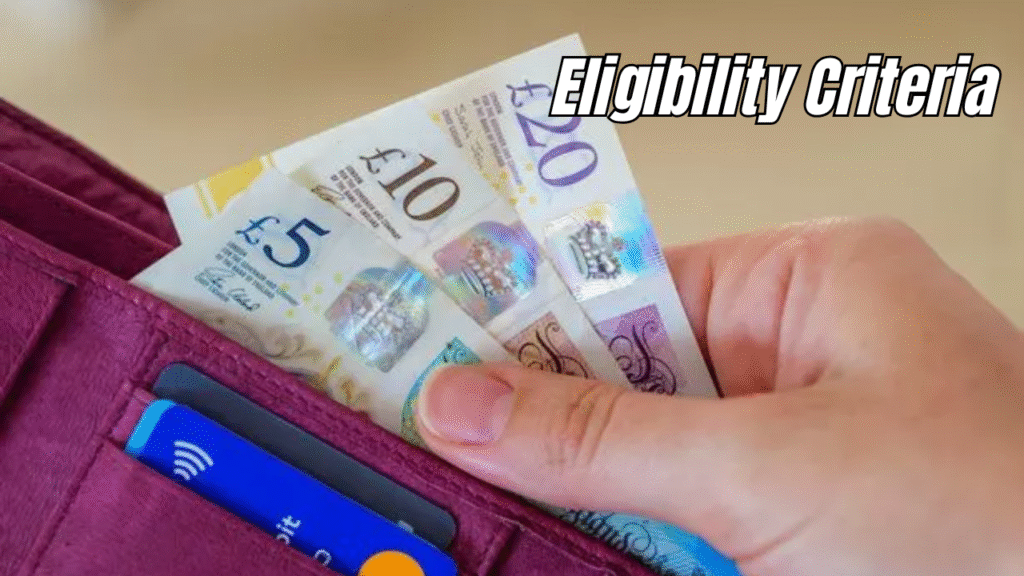Introduction
The UK government’s welfare system has undergone various transitions over the years. One of the most pivotal changes came with the introduction of Universal Credit (UC), which aimed to consolidate several legacy benefits into one streamlined payment. However, not every transition was seamless. Over time, a number of Universal Credit claimants were negatively impacted due to administrative oversights, delays, or wrongful denials.
As a result, the Department for Work and Pensions (DWP) introduced the £5,000 compensation payment to acknowledge and remedy the hardships experienced by a segment of claimants. This comprehensive guide explores everything UC claimants need to know about the £5,000 compensation scheme, the application process, eligibility requirements, documentation, and more.
1. Understanding Universal Credit
What is Universal Credit?
Universal Credit is a monthly payment to help with living costs. It was designed to simplify the benefits system by replacing six means-tested benefits:
- Jobseeker’s Allowance (income-based)
- Income Support
- Employment and Support Allowance (income-related)
- Housing Benefit
- Child Tax Credit
- Working Tax Credit
Purpose of Universal Credit
The key objectives of Universal Credit are:
- Streamlining welfare support
- Reducing benefit fraud
- Encouraging employment
- Supporting claimants to become financially independent
2. Background of the £5,000 Compensation Scheme
Why Was It Introduced?
The DWP introduced the compensation scheme in response to:
- Legal rulings identifying discriminatory practices
- Claimant hardship due to delays or miscommunication
- Unfair treatment of certain groups, including disabled claimants
- Errors in transitioning from legacy benefits
This scheme is a goodwill gesture and partial restitution for individuals who experienced financial and emotional distress.
Legal and Political Context
There have been multiple legal cases over the years that exposed flaws in how UC was implemented. Courts ruled that certain groups had been unfairly treated, including:
- Severely disabled people losing access to premiums
- Single mothers experiencing payment delays
- Individuals with fluctuating incomes unfairly penalised

3. Eligibility Criteria
Not every Universal Credit claimant is automatically entitled to the £5,000 compensation. The eligibility requirements are specific and tied to the individual’s experience during the rollout of UC.
Key Eligibility Points:
| Criteria | Description |
|---|---|
| Legacy Benefit Recipient | You were previously on legacy benefits (ESA, JSA, etc.) |
| Loss Due to UC Migration | You lost financial support due to migration to UC |
| Legal Precedent | Your case matches the precedent set in legal rulings (e.g., TP and AR case) |
| Severe Disability Premium (SDP) | You were receiving SDP before UC and lost it after migrating |
| Backdating Claims | You missed payments that should have been backdated |
| Financial Distress | You faced real hardship due to UC errors or delays |
4. How to Apply for the £5,000 Compensation Payment
Claimants must formally request compensation by submitting a complaint or claim to the DWP.
Step-by-Step Application Process
Step 1: Check Eligibility
- Gather documents confirming your previous benefit status.
- Determine if you fall into any known hardship categories.
Step 2: Prepare Documentation
- Benefit letters (legacy and UC)
- Medical reports (if applicable)
- Written correspondences with DWP
- Evidence of hardship (bank statements, eviction notices, etc.)
Step 3: File a Complaint
- Submit a formal complaint using the DWP’s online portal or by post.
- Clearly outline the issue, your hardship, and request compensation.
Step 4: Request Specific Compensation
- Mention the £5,000 figure if your case matches the criteria.
- Be precise in requesting restitution for suffering or financial loss.
Step 5: Await Review
- The DWP will review your case.
- They may ask for additional evidence or conduct interviews.
Step 6: Decision
- If approved, you will receive payment within weeks.
- If denied, you can appeal or escalate to the Independent Case Examiner (ICE).
5. Common Reasons for Approval
Here are scenarios where compensation is most often awarded:
- Severe Disability Premium recipients who migrated early to UC
- Individuals forced to rely on food banks or short-term loans due to DWP errors
- Delays in housing payments leading to eviction threats
- Emotional or mental health deterioration due to financial stress
- Loss of financial premiums previously entitled to

6. Amount and Structure of Payment
Although £5,000 is a common figure, the amount varies depending on the severity of the case.
Compensation Structure:
| Category | Estimated Compensation Range |
|---|---|
| Basic Administrative Error | £100–£500 |
| Missed Payments (3–6 months) | £1,000–£2,000 |
| Eviction or Legal Hardship | £3,000–£4,000 |
| Complex or Long-Term Cases | £5,000 or more |
Note: Compensation is usually tax-free and does not affect your benefit entitlement.
7. Supporting Evidence You Must Provide
To build a strong case, include the following:
- Letters from the DWP
- Emails and messages exchanged
- Medical documents (if claiming emotional distress)
- Testimonials from landlords or social workers
- Financial statements proving hardship
- Court documents (if legal action was taken)
8. Timeline of the Compensation Process
| Stage | Timeline |
|---|---|
| Complaint Filed | Day 0 |
| Acknowledgement from DWP | Within 10 working days |
| Investigation | 1–3 months |
| Final Decision | 3–6 months |
| Payment (if approved) | Within 30 days of decision |
Delays may occur depending on claim complexity and document completeness.
9. What to Do If Your Claim Is Denied
A rejected application isn’t the end of the road. Here are the options:
Appeal Options:
- Request Reconsideration: Ask DWP to re-evaluate.
- Escalate to ICE: Independent Case Examiner can review complaints objectively.
- Parliamentary and Health Service Ombudsman: For unresolved or mishandled complaints.
- Seek Legal Advice: If you believe you were unfairly denied, consult a solicitor.
10. Real-Life Examples
Case 1: John (Disabled Claimant)
John lost over £200 per month after moving to Universal Credit and had to stop receiving his SDP. After applying with help from a welfare advisor, he was granted a £5,000 compensation.
Case 2: Maria (Single Mother)
Maria had a 5-month delay in housing payments that almost got her evicted. She received £3,200 in compensation after appealing twice.
11. Role of Advocacy Groups and Legal Support
Welfare rights organizations, disability advocacy groups, and legal aid centers can help claimants:
- Understand eligibility
- Collect necessary documentation
- Draft compelling complaint letters
- Appeal unfavorable decisions
Free legal support is often available through Citizens Advice or housing associations.
12. Avoiding Scams and Fraud
With high interest in the £5,000 compensation payment, scammers may try to exploit vulnerable individuals. Here are tips:
- Never pay upfront fees for help.
- Only use DWP official channels.
- Be cautious of third-party websites promising fast-tracked payments.
13. Future of the Compensation Scheme
While the current compensation model is reactive, discussions continue around implementing automatic safeguards and proactive compensation for future policy changes.
There are calls for:
- More transparency in DWP practices
- Automatic redress when systemic errors are identified
- Better protection for disabled and vulnerable populations
14. How This Payment Affects Other Benefits
The £5,000 compensation is:
- Non-taxable
- Does not count as income for benefits
- Does not reduce your Universal Credit entitlement
It is treated as a one-off goodwill payment and does not interfere with other state support.
15. Tips for a Successful Claim
- Be factual and detailed in your complaint.
- Stay organized – create a folder of evidence.
- Follow up regularly with DWP for updates.
- Seek help from welfare rights advisors or legal support.
- Be patient – the process can take time.
Conclusion
The DWP £5,000 Compensation Payment stands as a symbol of accountability, aiming to address the real and often painful experiences of individuals impacted by the rollout of Universal Credit. While the payment cannot fully undo the hardships faced, it does offer a step toward justice and restoration.
Claimants should be proactive, informed, and persistent in asserting their rights. Whether through direct application or appeal, the path to compensation is attainable with the right guidance and documentation.
Always remember: help is available, your voice matters, and compensation for past wrongs is both a right and a possibility.
FAQs
1. Is everyone on Universal Credit eligible for the £5,000 compensation?
No. Only those who suffered financial or emotional hardship due to specific administrative errors or unjust treatment during the UC transition may qualify.
2. Will this payment affect my other benefits or taxes?
No. The compensation is tax-free and does not count as income. It won’t reduce your other benefits.
3. How long does it take to receive the payment once approved?
Typically within 30 days of the final approval, though delays can occur based on claim complexity.
4. What happens if my application is denied?
You can request a reconsideration, escalate the matter to the Independent Case Examiner, or contact an ombudsman or solicitor for further assistance.


